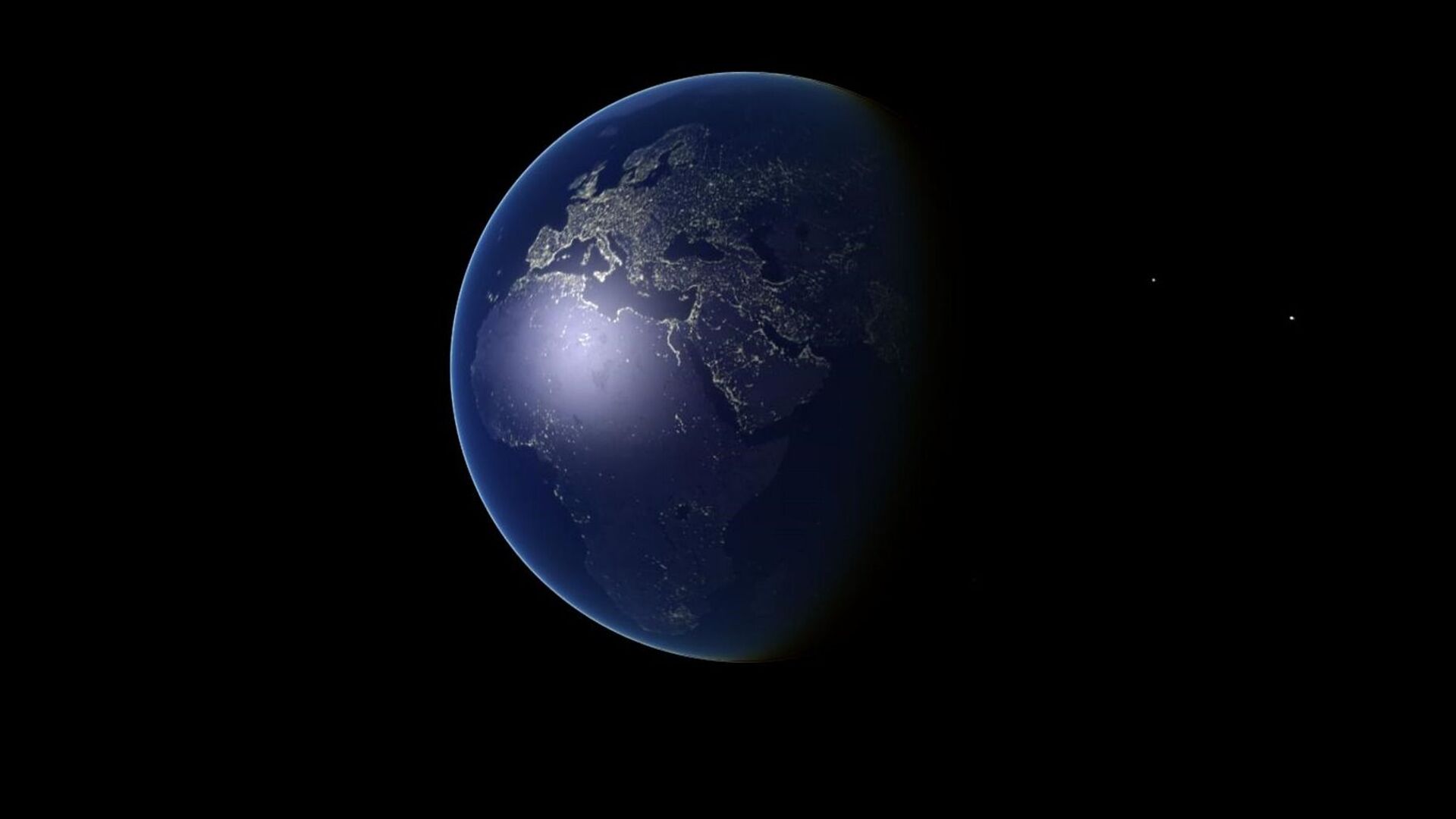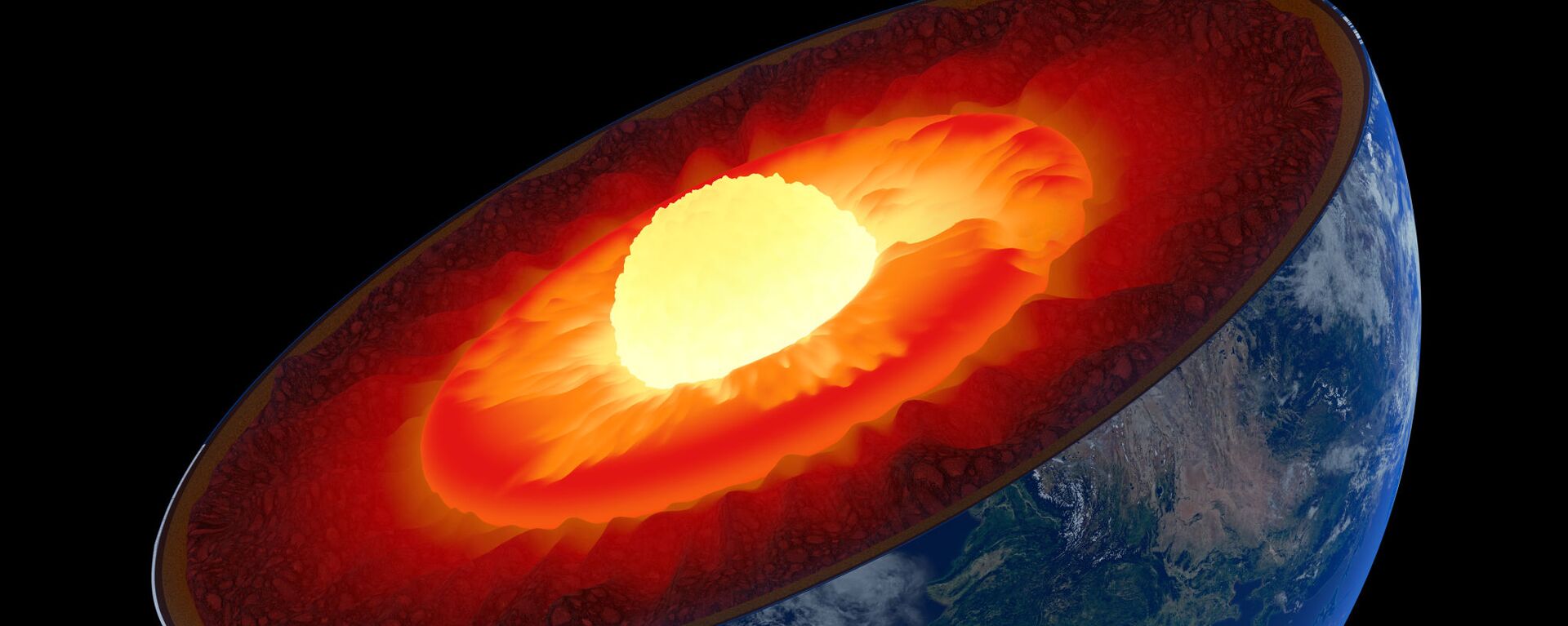https://sputnikglobe.com/20210805/new-research-tackles-mystery-of-uneven-growth-of-earths-solid-inner-core-1083536094.html
New Research Tackles Mystery of 'Uneven Growth' of Earth's Solid Inner Core
New Research Tackles Mystery of 'Uneven Growth' of Earth's Solid Inner Core
Sputnik International
The research suggests that one half of our planet’s inner core, which is comprised of solid metal, may be growing faster than the other half. 05.08.2021, Sputnik International
2021-08-05T16:45+0000
2021-08-05T16:45+0000
2022-11-03T19:33+0000
science & tech
society
newsfeed
core
growth
study
earth
https://cdn1.img.sputnikglobe.com/img/07e4/0c/08/1081397710_46:0:1875:1029_1920x0_80_0_0_90d5318f7ddd8fd195e14d0adc347c77.jpg
A new study offers insight into the development of the solid metal inner core of our planet.According to an article published on The Conversation, Earth’s solid core, which started to crystallise when the temperature at the planet’s centre dropped "below the melting point of iron at extreme pressures," keeps growing by about 1mm in radius per year.Now, the new study postulates that this increase in size is actually asymmetrical, and that the eastern part of the inner core, located below Asia, is growing faster than the western part of the inner core that lies beneath the Americas.The article’s authors, who apparently weren’t involved in the research in question, have compared this "uneven growth" to the process of making an ice cream in a freezer "that’s only working on one side," when ice crystals forming only on the side of the product "where the cooling is effective."The study also provides rough estimates of the inner’s core age, placing it between 500 million and 1,500 million years old.
https://sputnikglobe.com/20210305/what-lies-beneath-our-feet-scientists-change-our-understanding-of-earths-inner-core-1082266556.html
earth
Sputnik International
feedback@sputniknews.com
+74956456601
MIA „Rosiya Segodnya“
2021
News
en_EN
Sputnik International
feedback@sputniknews.com
+74956456601
MIA „Rosiya Segodnya“
Sputnik International
feedback@sputniknews.com
+74956456601
MIA „Rosiya Segodnya“
science & tech, society, newsfeed, core, growth, study, earth
science & tech, society, newsfeed, core, growth, study, earth
New Research Tackles Mystery of 'Uneven Growth' of Earth's Solid Inner Core
16:45 GMT 05.08.2021 (Updated: 19:33 GMT 03.11.2022) The research suggests that one half of our planet’s inner core, which is comprised of solid metal, may be growing faster than the other half.
A new study offers insight into the development of the solid metal inner core of our planet.
According to an article published on The Conversation, Earth’s solid core, which started to crystallise when the temperature at the planet’s centre dropped "below the melting point of iron at extreme pressures," keeps growing by about 1mm in radius per year.
Now, the new study postulates that this increase in size is actually asymmetrical, and that the eastern part of the inner core, located below Asia, is growing faster than the western part of the inner core that lies beneath the Americas.
The article’s authors, who apparently weren’t involved in the research in question, have compared this "uneven growth" to the process of making an ice cream in a freezer "that’s only working on one side," when ice crystals forming only on the side of the product "where the cooling is effective."
"In the Earth, the uneven growth is caused by the rest of the planet sucking heat more quickly from some parts of the inner core than others," they explain. "But unlike the ice cream, the solid inner core is subject to gravitational forces which distribute the new growth evenly through a process of creeping interior flow, which maintains the inner core’s spherical shape."
The study also provides rough estimates of the inner’s core age, placing it between 500 million and 1,500 million years old.
But while the study "presents a powerful new model of the inner core," a "number of physical assumptions" made by the authors of that work "would have to be true for this to be correct," The Conversation article warns.




